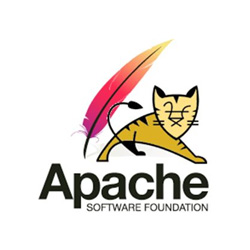Apache Application Performance Monitor
Using FusionReactor to monitor Apache applications, you can ensure that your applications are running optimally, identify and resolve performance issues quickly, and improve the overall user experience. FusionReactor’s detailed performance analysis and customizable alerting make it a valuable tool for identifying and fixing performance issues before they affect your users.
All the insight you need from the Apache Application Performance Monitor
- Deep insight: FusionReactor provides deep insight into the performance of Apache applications, including detailed information about memory usage, thread performance, and database performance.
- Real-time monitoring: FusionReactor provides real-time monitoring of Apache applications, making it easy to detect and resolve performance issues as they occur.
- Easy-to-use interface: FusionReactor has a user-friendly interface that makes it easy to navigate and understand performance metrics, even for developers who are not experts in performance monitoring.
- Customizable alerting: FusionReactor provides customizable alerting that can be configured to send notifications when specific performance thresholds are crossed, allowing you to address performance issues proactively.
- Performance analysis: FusionReactor provides detailed performance analysis, including transaction tracing and flame graphs, making identifying the root cause of performance issues easier.
- Integration with Apache Tomcat: FusionReactor provides built-in support for Apache Tomcat, the most commonly used web server for running Apache applications.
Why Monitor Apache?
An application performance monitoring (APM) tool provides visibility into the performance and behavior of your application, helping you to identify and resolve performance issues and improve the overall user experience. Some reasons to use an APM include the following:
- Improved User Experience: APMs provide real-time visibility into the performance of your application, making it easier to identify and resolve performance issues before they affect your users, ensuring a fast and responsive user experience.
- Early detection of issues: APMs allow you to detect performance issues early when they are easier to resolve, and before they become more serious problems.
- Increased reliability: APMs provide detailed insights into the performance and behavior of your application, making it easier to detect and resolve issues that may cause the application to crash or become unavailable, improving the overall reliability of your application.
- Improved scalability: APMs help you identify performance bottlenecks and make the necessary changes to improve the scalability of your application.
- Increased security: APMs can detect and respond to security threats, such as resource exhaustion attacks, and protect sensitive data.
- A better understanding of application behavior: APMs provide valuable insights into how your application behaves under different conditions, making it easier to identify areas for improvement and optimize performance.
- Compliance with industry standards: APMs can help you meet regulatory requirements and industry standards, such as PCI-DSS and HIPAA, by providing a detailed record of application behavior.
Using FusionReactor is critical for ensuring a fast, reliable, and secure user experience, and for improving the overall performance and scalability of your application. By providing real-time visibility into the performance of your application, APMs allow you to proactively identify and resolve performance issues and ensure that your application is running optimally.
See What Our Customers Think
What is Apache?
The Apache HTTP Server, colloquially called Apache (/əˈpætʃi/ ə-PATCH-ee), is a free and open-source cross-platform web server software, released under the terms of Apache License 2.0. Apache is developed and maintained by an open community of developers under the auspices of the Apache Software Foundation.
The vast majority of Apache HTTP Server instances run on a Linux distribution,[6] but current versions also run on Microsoft Windows[7] and a wide variety of Unix-like systems. Past versions also ran on OpenVMS,[8] NetWare, OS/2 and other operating systems,[9] including ports to mainframes.[10]
Originally based on the NCSA HTTPd server, the development of Apache began in early 1995 after work on the NCSA code stalled. Apache played a key role in the initial growth of the World Wide Web,[11] quickly overtaking NCSA HTTPd as the dominant HTTP server, and has remained most popular since April 1996. In 2009, it became the first web server software to serve more than 100 million websites.[12] As of April 2020, Netcraft estimated that Apache served 29.12% of the million busiest websites, while Nginx served 25.54%;[13] according to W3Techs, Apache served 39.5% of the top 10 million sites and Nginx served 31.7%














































